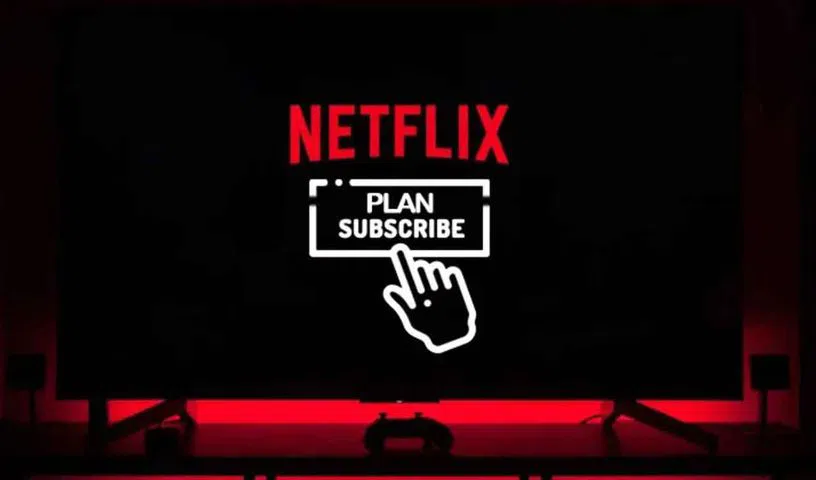
The real concern is not the existence of subscriptions but their unchecked proliferation and the gradual erosion of alternative models
By Viiveck Verma
For a long time, ownership was a defining marker of success. You bought your music, your movies, your car, your home. You built a collection, accumulated possessions, and felt a sense of security in knowing that what you paid for was yours. Today, that paradigm has shifted. From entertainment to essential services, we increasingly rent access rather than own outright.
The rise of the subscription economy, where everything from software and streaming content to furniture, cars, and even home appliances can be rented for a monthly fee, has fundamentally altered the way we consume. But as we embrace this model, we must ask if we are truly benefiting, or are we surrendering too much control over our lives?
The New Rule
The subscription economy is not a new concept, but its expansion into nearly every facet of modern existence is remarkable. Newspapers and magazines were among the earliest subscription-based services, followed by cable television and software licenses. However, what was once an exception has now become the rule.
Netflix and Spotify revolutionised entertainment consumption by replacing individual purchases with unlimited access models. Amazon Prime extended the model to retail and logistics, while SaaS (Software as a Service) turned software ownership into a perpetual rental agreement. Today, we have subscription-based clothing, meal kits, fitness programmes, cloud storage, and even car leases structured as ‘all-inclusive’ subscriptions. Some companies even offer subscription housing, where tenants pay a single fee covering rent, utilities, and shared amenities.
At Corporates’ Mercy
At face value, this shift is appealing. Subscriptions offer flexibility, convenience, and often, cost savings, at least in the short term. Why buy an expensive software package when you can access it for a fraction of the cost each month? Why own a massive DVD or music collection when you can stream whatever you want on demand? Subscriptions promise a world where access trumps ownership, where consumers are free from the burdens of maintenance, depreciation, and obsolescence.
Yet, beneath this convenience lies a deeper question. Are we relinquishing more than we realise? The fundamental shift from ownership to access means we are perpetually tied to a system of recurring payments, with little control over the terms of engagement. Consider the case of digital media, purchasing a CD or a DVD once meant indefinite access to your favourite content. Now, if Netflix removes a film from its library or if Spotify loses licensing rights to an album, the consumer has no recourse. The same logic applies to software designers and photographers who once bought Adobe Photoshop outright, must now subscribe indefinitely, or lose access to their own work. The consumer has moved from being a rightful owner to a perpetual renter, at the mercy of corporate pricing strategies and shifting terms of service.
Drain on Finances
The financial implications of this model are significant. What seems affordable in small monthly instalments can quickly add up, creating a constant drain on personal finances. Individually, a Rs 150-a-month music subscription or a Rs 1,200-a-month video service seems inconsequential. But when multiplied across multiple platforms, news, entertainment, fitness, storage, software, and even groceries, subscriptions can quietly erode disposable income.
Unlike one-time purchases that provide long-term value, subscriptions demand continuous payments, and companies are incentivised to make their services indispensable while subtly increasing costs over time. Moreover, the subscription model is designed to maximise customer retention, often at the expense of financial transparency. Many services operate on an ‘opt-out’ rather than ‘opt-in’ basis, making cancellation intentionally cumbersome. Free trials seamlessly convert into paid plans, price hikes go unnoticed in bundled payments, and companies rely on consumer inertia to keep revenue streams flowing. In this system, convenience is often a double-edged sword; the ease of subscribing is matched by the difficulty of unsubscribing.
The fundamental shift from ownership to access means we are perpetually tied to a system where we pay endlessly, yet own nothing at all
Beyond personal finances, the deeper consequence of the subscription economy is a shift in the very nature of ownership and individual agency. When nearly everything is accessed rather than owned, what do we truly possess? A home owned outright provides security, a home rented under a subscription model provides convenience but remains vulnerable to market fluctuations and policy changes. A purchased car is an asset, a subscribed vehicle remains under corporate control, subject to usage restrictions and arbitrary terminations. Even digital purchases like e-books, video games, and streaming libraries are increasingly structured as temporary leases, contingent on licensing agreements rather than true ownership.
This shift also grants immense power to corporations, and consumer choice is paradoxically limited. If a company decides to alter its terms, raise prices, or bundle services in a way that forces consumers into higher-tier plans, individuals have little recourse. Apple, Google, Amazon and Microsoft, the gatekeepers of the digital ecosystem, effectively control access to vast swaths of modern life, deciding what remains available and at what cost. Consumers, tied to ecosystems they rely on for work, entertainment, and even daily functioning, find themselves with little leverage to negotiate better terms.
Unchecked Proliferation
So, where does this leave us? Are subscriptions inherently bad? Not necessarily. There are undeniable advantages to the model, especially in industries where flexibility, scalability, and convenience outweigh the burdens of ownership. For businesses, subscriptions provide predictable revenue streams and foster long-term customer relationships. For consumers, they offer affordability and adaptability, allowing access to services that might otherwise be prohibitively expensive. The real concern is not the existence of subscriptions but their unchecked proliferation and the gradual erosion of alternative models. In a healthy marketplace, consumers should have a choice between renting and owning. Yet, as companies increasingly push toward subscription-only models — phasing out lifetime licenses, limiting pay-once options, and creating artificial dependencies — we risk a future where ownership becomes a luxury rather than a norm.
To navigate this shift responsibly, consumers must be vigilant. Evaluating subscription expenses, understanding cancellation policies, and advocating for fair pricing and transparency are essential. Meanwhile, regulators must ensure that companies do not exploit the model to entrap consumers in perpetual payments or restrict access to critical services. The question is not whether subscriptions should exist, but whether they should be the default model for everything.
We are moving toward an economy where many segments of our lives, in many ways, are rented rather than owned. Whether this is a liberating shift or a restrictive one depends on how much control we retain in the process. If subscriptions enhance choice, they are a welcome evolution. But if they become the only way forward, we may find ourselves in a world where we pay endlessly, yet own nothing at all.







